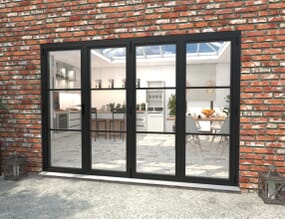 Climadoor
Climadoor
Climadoor Black Heritage Aluminium Bi-folding Patio Doors
From £2,249.00 inc VAT.
£1,874.17 ex VAT
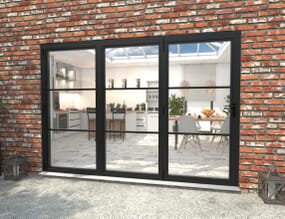 Climadoor
Climadoor
Climadoor Black Heritage Aluminium Bifold Doors - Part Q Compliant
From £2,499.00 inc VAT.
£2,082.50 ex VAT
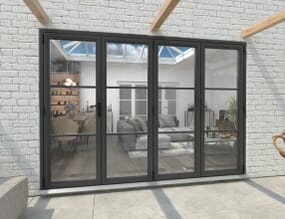 Climadoor
Climadoor
Climadoor Grey Heritage Aluminium Bi-folding Patio Doors
From £2,199.00 inc VAT.
£1,832.50 ex VAT
Climadoor Grey Heritage Aluminium Bifold Doors - Part Q Compliant
From £2,299.00 inc VAT.
£1,915.83 ex VAT
Climadoor Grey Aluminium Bi-folding Patio Doors
From £1,899.00 inc VAT.
£1,582.50 ex VAT
Climadoor Grey Aluminium Bifold Doors - Part Q Compliant
From £1,999.00 inc VAT.
£1,665.83 ex VAT
Climadoor White Aluminium Bi-folding Patio Doors
From £1,899.00 inc VAT.
£1,582.50 ex VAT
Climadoor White Aluminium Bifold Doors - Part Q Compliant
From £1,999.00 inc VAT.
£1,665.83 ex VAT
Climadoor Black Aluminium Bi-folding Patio Doors - Part Q Compliant
From £1,999.00 inc VAT.
£1,665.83 ex VAT
Climadoor Black Aluminium Bi-folding Patio Doors
From £1,899.00 inc VAT.
£1,582.50 ex VAT
All our aluminium bifold doors are also energy-efficient, boasting excellent u-values which can help to reduce heat transfer, saving on heating and cooling costs. The range of aluminum bifold doors at Vivid Doors are available in a range of styles and colours to transform your home into something unique.
Questions about Aluminium Bifold Doors
There are several reasons why someone might choose to buy aluminium bifold doors, including:
A U-value is a measure of the rate at which heat is transferred through a material or a structure. It is commonly used to assess the thermal performance of windows, doors, and other building elements. The lower the U-value, the better the thermal performance of the material or structure. U-values are typically expressed in units of watts per square meter per degree Celsius (W/m²·°C), and are often used to compare the thermal performance of different materials or products. For example, a door with a U-value of 1.2 W/m²·°C would be considered more thermally efficient than a door with a U-value of 1.8 W/m²·°C.
Bifold doors and French doors are similar in that they both consist of multiple panels that are hinged together and open from the center. However, there are some key differences between the two types of doors.
One of the main differences between bifold doors and French doors is their size and space-saving design. Bifold doors are designed to fold in on themselves when opened, which means they take up less space than French doors. This makes bifold doors a good choice for small spaces such as closets or pantries, where a traditional swinging door would take up too much room. French doors, on the other hand, open outward in a traditional swinging motion, which means they require more space to operate.
Another difference between bifold doors and French doors is the amount of light and visibility they provide. Bifold doors can be fully opened to provide a clear view of the outside, while French doors typically only open halfway. This means that bifold doors can provide a better view and more natural light than French doors.
Overall, the choice between bifold doors and French doors will depend on the specific needs and preferences of a space. Bifold doors are a good choice for small spaces and for providing a wide, clear opening, while French doors are a better option for spaces that have more room and where a traditional swinging door is desired.
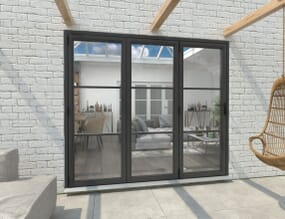 Climadoor
Climadoor
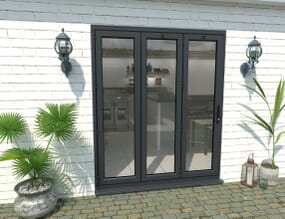 Climadoor
Climadoor
 Climadoor
Climadoor
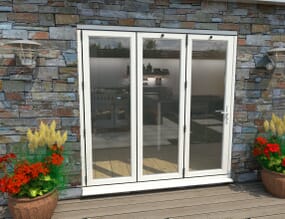 Climadoor
Climadoor
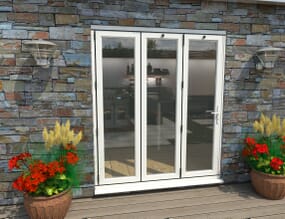 Climadoor
Climadoor
 Climadoor
Climadoor
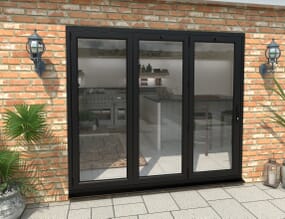 Climadoor
Climadoor